The Fire and the Flower: The Pablo Neruda Quotes That Will Break and Remake Your Heart
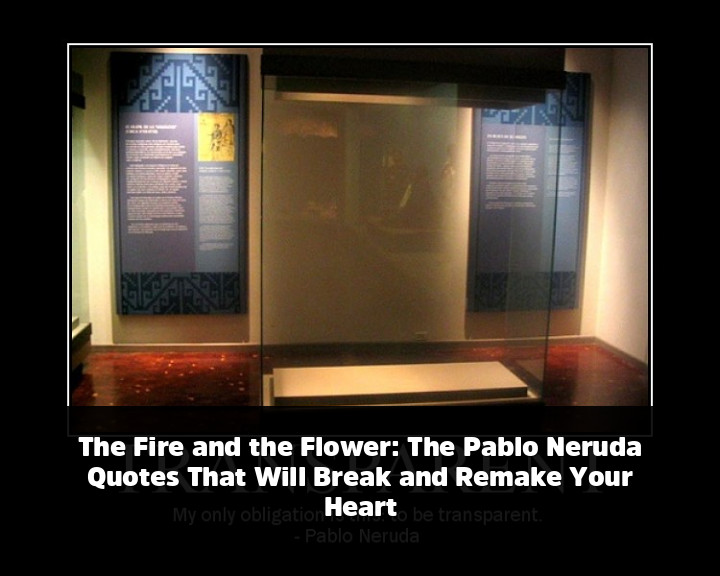
Some poets write with ink; Pablo Neruda wrote with fire, with earth, with the sea. To read his words is not a passive activity; it’s an experience. It’s the feeling of cool rain on your skin, the ache of a phantom limb, the warmth of a smoldering ember. The internet is overflowing with lists of Pablo Neruda Quotes, often attached to romantic images, but to truly understand their power, you have to go deeper. You have to be willing to explore the shadows as well as the light. Neruda wasn’t just a writer of pretty love poems; he was a Nobel laureate, a fervent political activist, and a man of profound contradictions. This is not just a collection of his most famous lines; it’s an immersion into the passionate, painful, and breathtakingly beautiful world of a man who Gabriel García Márquez called “the greatest poet of the 20th century—in any language.”
The Language of Desire: Quotes on Love and Longing
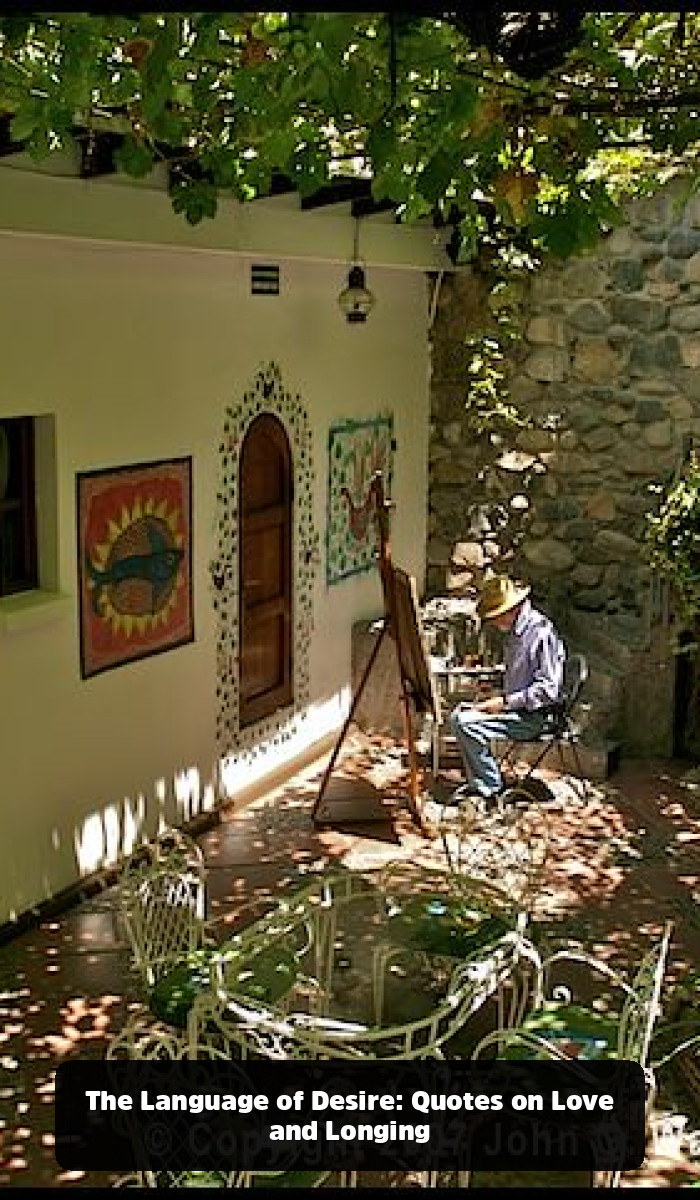
When people search for famous Pablo Neruda sayings, they are almost always looking for the language of love. No poet has ever captured the raw, elemental, and all-consuming nature of desire quite like Neruda. His love poetry is not polite or restrained; it is a force of nature. It is hungry, it is desperate, and it is overwhelmingly beautiful. These Pablo Neruda quotes are not just about love; they are love, rendered in word and fire.
“I want to do with you what spring does with the cherry trees.”
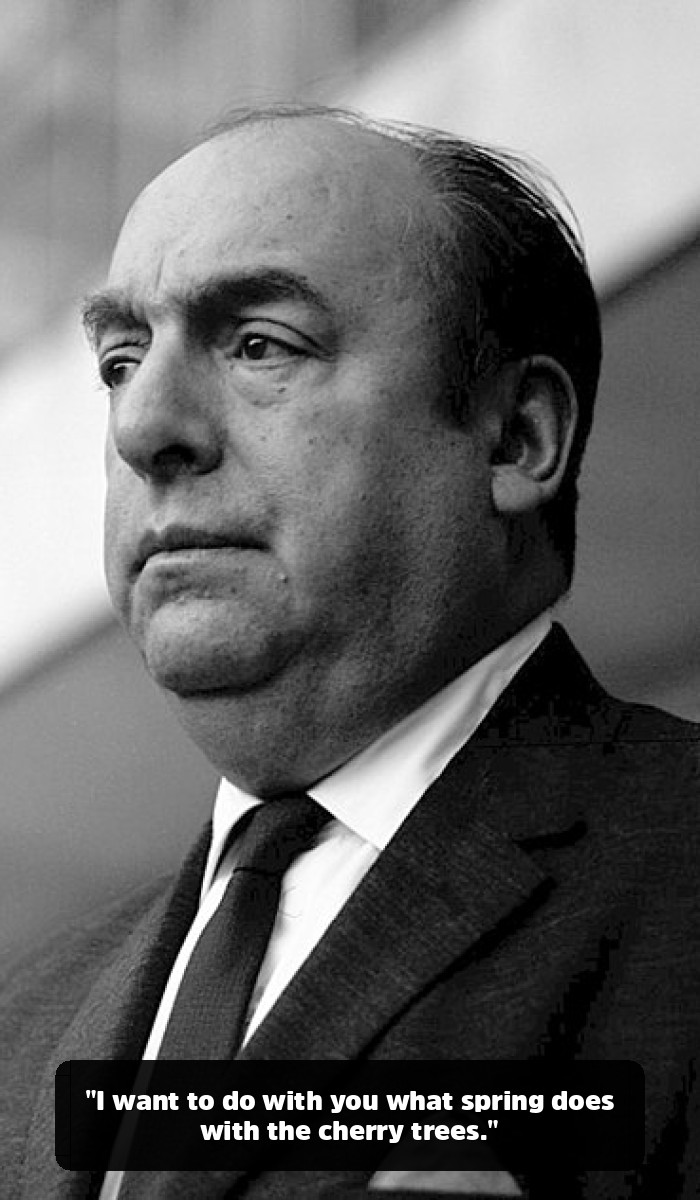
This is, quite simply, one of the most perfect lines ever written about love and desire. It’s a universe of meaning packed into a single, breathtaking sentence. It’s not just about a physical act; it’s about transformation, about awakening, about an explosive and inevitable blossoming. Spring doesn’t ask the cherry trees for permission; it arrives and compels them to burst into color and life. It is a natural, creative, and life-affirming force.
This quote perfectly illustrates Neruda’s genius for using natural imagery to describe human emotion. He could have said, “I want to make you feel alive,” but that would be telling. Instead, he shows us, with a metaphor that is both gentle and overwhelmingly powerful. It speaks to a desire that is not just about taking, but about giving; a desire to bring forth the most beautiful, vibrant version of the beloved. This is the essence of so many quotes by Pablo Neruda: they elevate human love to the level of a cosmic, natural event.
“I love you as certain dark things are to be loved, in secret, between the shadow and the soul.”

This line, from his iconic 100 Love Sonnets, delves into a more complex and mysterious kind of love. This isn’t the bright, sunny love of a summer’s day. This is a love that thrives in the quiet, intimate spaces of the inner world. It’s a love that doesn’t need to be announced or performed for an audience.
Let’s unpack the imagery:
- “Certain dark things”: This suggests a love for the parts of a person that are not on public display—their flaws, their fears, their hidden depths. It’s a love that is not afraid of the shadows.
- “In secret, between the shadow and the soul”: This is the sacred space of true intimacy. It’s a connection that exists beyond the physical world (“the shadow”) and in the very essence of one’s being (“the soul”).
This is a mature, profound love. It’s a love that says, “I see all of you, even the parts you keep hidden, and I love you not in spite of them, but because of them.” This particular example of Pablo Neruda’s words of wisdom teaches us that the deepest connections are often the ones that are nurtured away from the glare of the outside world.
“I crave your mouth, your voice, your hair.”
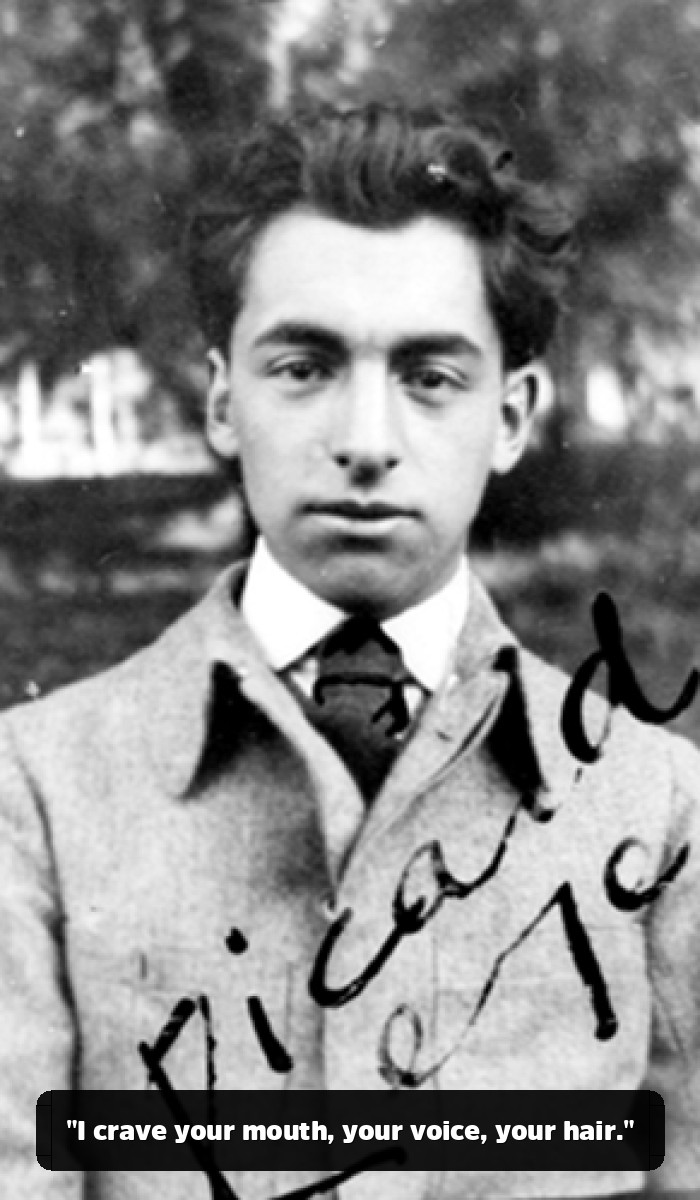
If the previous quotes were about the spiritual and transformative aspects of love, this is about the raw, undeniable hunger of physical desire. This is the opening of Sonnet XI, and it descends into a litany of desperate, almost primal, longing:
“Silent and starving, I prowl through the streets. Bread does not nourish me, dawn disrupts me, all day I hunt for the liquid measure of your steps… I want to eat your skin like a whole almond.”
This is not a polite valentine. This is a confession of an obsession. The lover is a predator, a puma hunting for its sustenance. Neruda masterfully uses the language of starvation and hunting to describe the all-consuming nature of his desire. The beloved is not just an object of affection; she is a source of life itself, more essential than bread. This is what sets the most passionate Pablo Neruda quotes apart—their shocking, almost violent intensity. He is not afraid to explore the fine line between love and madness, between desire and desperation.
The Agony of Forgetting: Quotes on Heartbreak and Memory
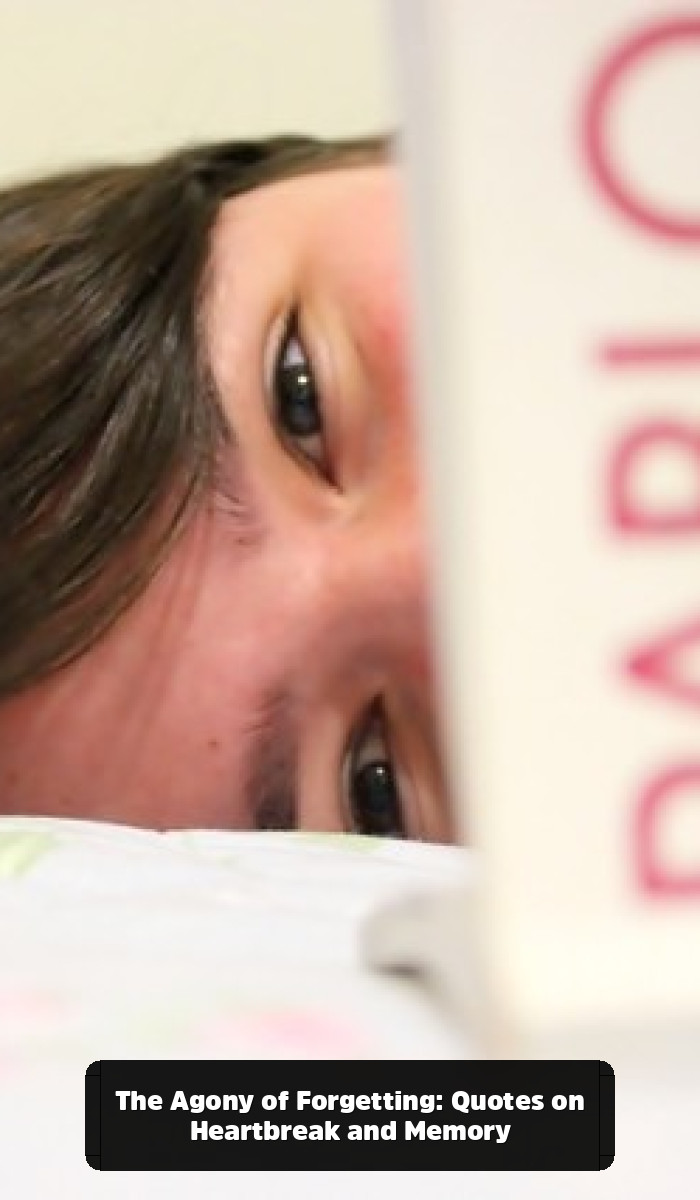
For a poet who wrote so ecstatically about love, Neruda was equally masterful at capturing its devastating absence. His poems of heartbreak are not just sad; they are vast, empty landscapes of memory and longing. He understood that the ghost of a great love can haunt a life for years, and he gave that haunting a voice. The following Pablo Neruda quotes are for anyone who has ever known the profound ache of loss.
“Tonight I can write the saddest lines.”
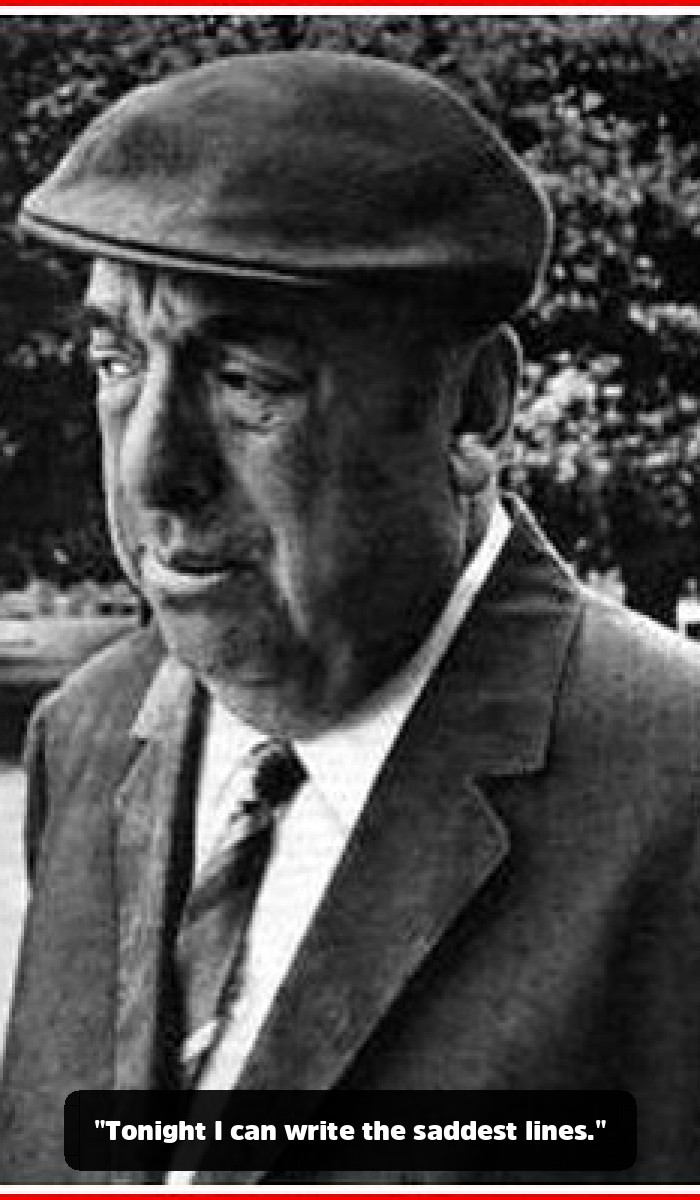
This is the opening of what is arguably his most famous poem, “Tonight I Can Write,” from the collection Twenty Love Poems and a Song of Despair. It’s a declaration of intent, a poet gathering his strength to confront the full weight of his sorrow. The entire poem is a masterpiece of melancholy, a back-and-forth struggle between a love that was and a loss that is.
“I loved her, and sometimes she loved me too.”
This line is devastating in its simple, honest ambiguity. It’s not the certainty of unrequited love; it’s the lingering pain of a love that was real, but inconsistent. The poem is filled with sensory details—the starry night, the shivering of the stars, the wind singing—all of which serve to amplify his loneliness. The universe is vast and beautiful, but it only makes her absence feel more immense. This poem is a cornerstone of any collection of famous Pablo Neruda quotes on heartbreak, a perfect encapsulation of a love that has ended but is not yet over.
“Love is so short, forgetting is so long.”
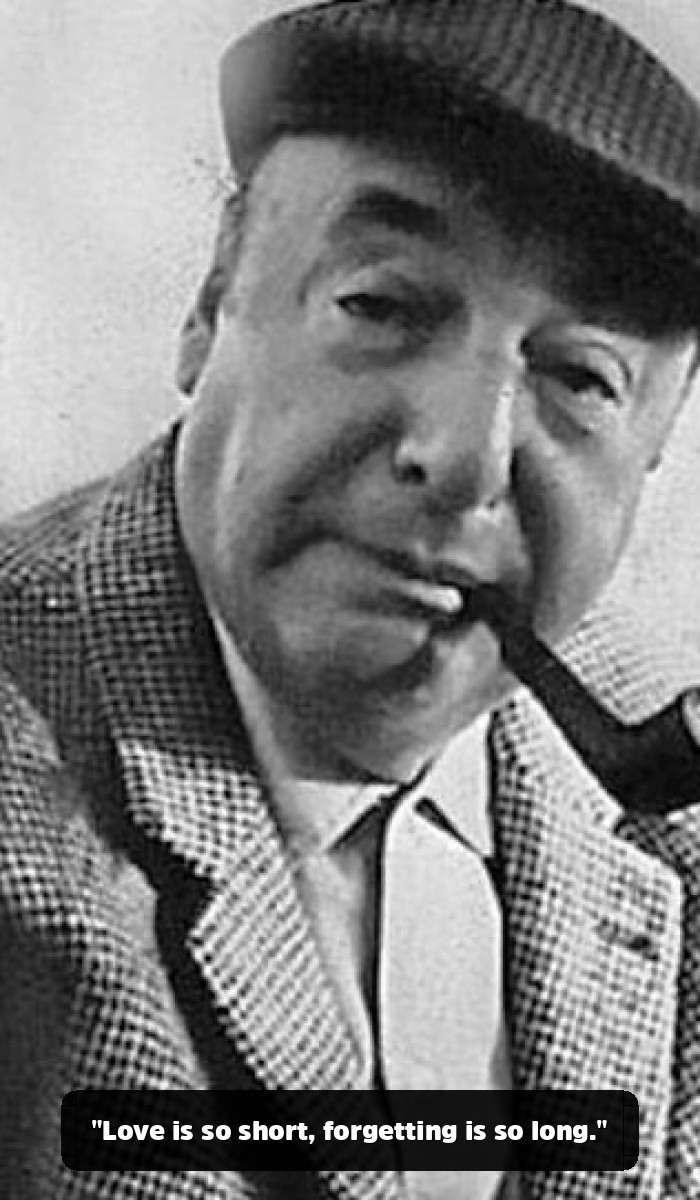
This quote, also from “Tonight I Can Write,” is a brutal and perfect equation of heartbreak. It’s the cruel asymmetry of love and loss. The experience of being in love, the “short” part, can feel fleeting, a flash of lightning in the span of a life. But the process of “forgetting,” of healing, of moving on, can feel like an eternity.
This single line captures the psychological reality of a breakup. The happy memories play on a loop, but the pain of the ending stretches out, seemingly without end. It’s one of the most direct and emotionally resonant of all quotes by Pablo Neruda. It requires no poetic analysis; it is simply a profound truth, felt by anyone who has ever had to learn to live without someone they loved.
“If little by little you stop loving me / I shall stop loving you / Little by little.”
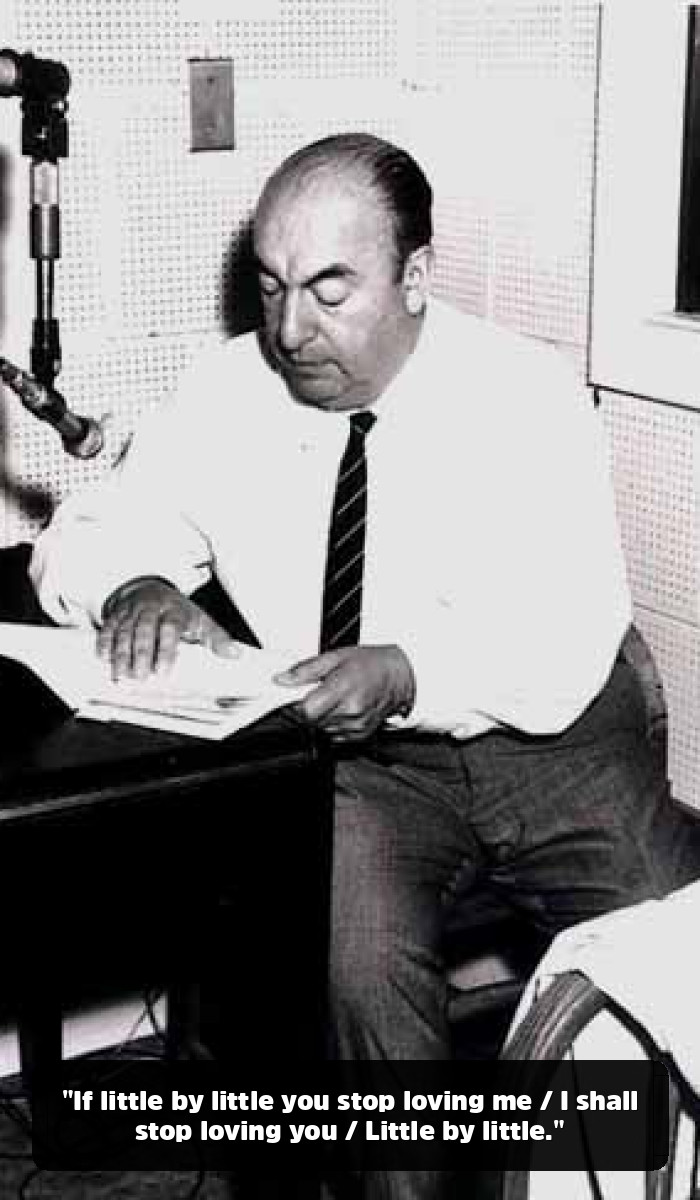
This passage, from his poem “If You Forget Me,” is not a poem of passive sorrow, but one of proud, defiant heartbreak. It is a conditional declaration of emotional independence. The speaker is not begging for his lover to stay. He is laying out the terms of their emotional contract with a chilling, almost mathematical precision.
“If suddenly you forget me Do not look for me For I shall already have forgotten you.”
He matches her potential indifference with his own. His love is not a weakness; it is a fire that requires her love as fuel. If she removes the fuel, his fire will go out. It’s a powerful act of self-preservation. He is refusing to be the one left waiting, the one left clinging to a memory. While it is a poem about the potential end of love, it is also a poem about self-respect. This is one of the most powerful and self-respecting of all the known Pablo Neruda quotes on the painful dynamics of love.
A Neruda Treasury: 30 Essential Quotes
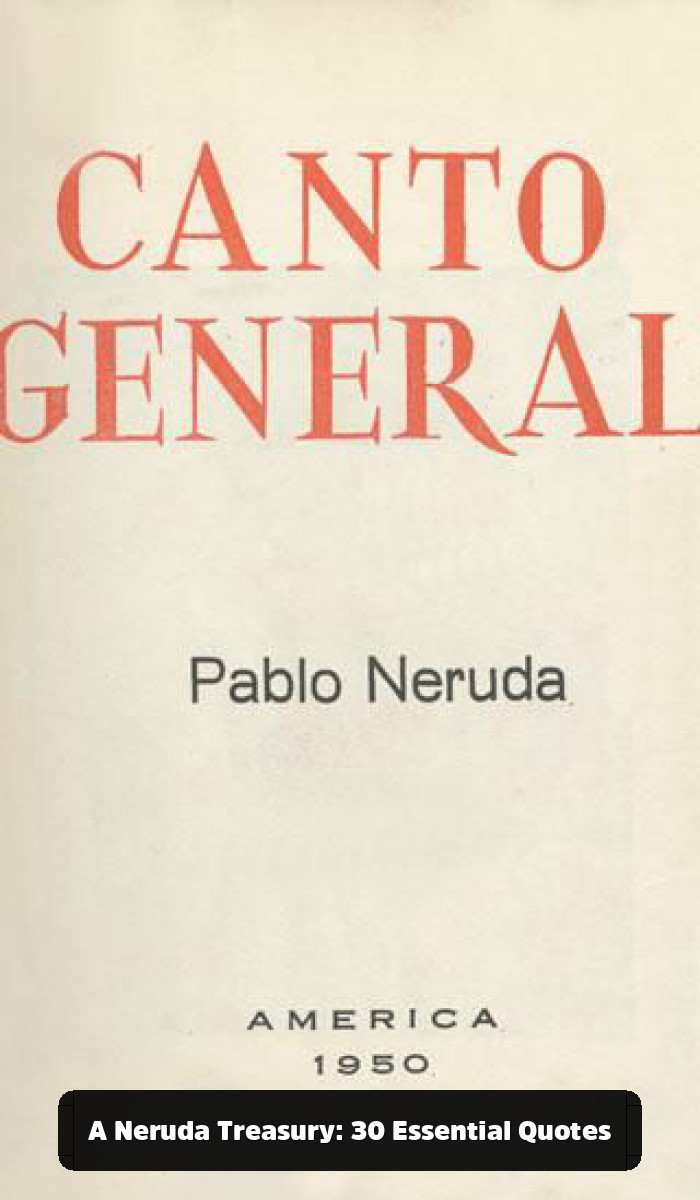
To fully appreciate the breadth of his work, here is a collection of essential Pablo Neruda quotes. As per the unique instructions for this list, the words stand on their own, a testament to their inherent power.
- I love you without knowing how, or when, or from where.
- Love is so short, forgetting is so long.
- I want to do with you what spring does with the cherry trees.
- You can cut all the flowers but you cannot keep Spring from coming.
- As if you were on fire from within. The moon lives in the lining of your skin.
- Tonight I can write the saddest lines.
- Someday, somewhere – anywhere, unfailingly, you’ll find yourself, and that, and only that, can be the happiest or bitterest hour of your life.
- Let us forget with generosity those who cannot love us.
- Laughter is the language of the soul.
- You are like nobody since I love you.
- To feel the love of people whom we love is a fire that feeds our life.
- I love you as certain dark things are to be loved, in secret, between the shadow and the soul.
- so I wait for you like a lonely house till you will see me again and live in me. Till then my windows ache.
- But I love your feet only because they walked upon the earth and upon the wind and upon the waters, until they found me.
- If nothing saves us from death, at least love should save us from life.
- my feet will want to walk to where you are sleeping but I shall go on living.
- Then love knew it was called love. And when I lifted my eyes to your name, suddenly your heart showed me my way.
- And one by one the nights between our separated cities are joined to the night that unites us.
- He who does not travel, who does not read, who does not listen to music, who does not find grace in himself, dies slowly.
- A child who does not play is not a child, but the man who doesn’t play has lost forever the child who lived in him and who he will miss terribly.
- All paths lead to the same goal: to convey to others what we are.
- Take bread away from me, if you wish, take air away, but do not take from me your laughter.
- I grew up in this town, my poetry was born between the hill and the river, it took its voice from the rain.
- He who does not know the Chilean forests, does not know the planet.
- There are wounds that– instead of opening our skin– open our eyes.
- We poets hate hate, and we make war on war.
- If you ask me what my poetry is I must tell you I don’t know; but if you ask my poetry, it will tell you who I am.
- My dog looked at me, with those eyes purer than mine… with the look he reserved for me all his sweet, furry life.
- In one kiss, you’ll know all I haven’t said.
- And since then, I am because you are. Since then, you are, I am, and we are. And for love, I will be, you will be, we will be.
The People’s Poet: Quotes on Justice, Hope, and Politics
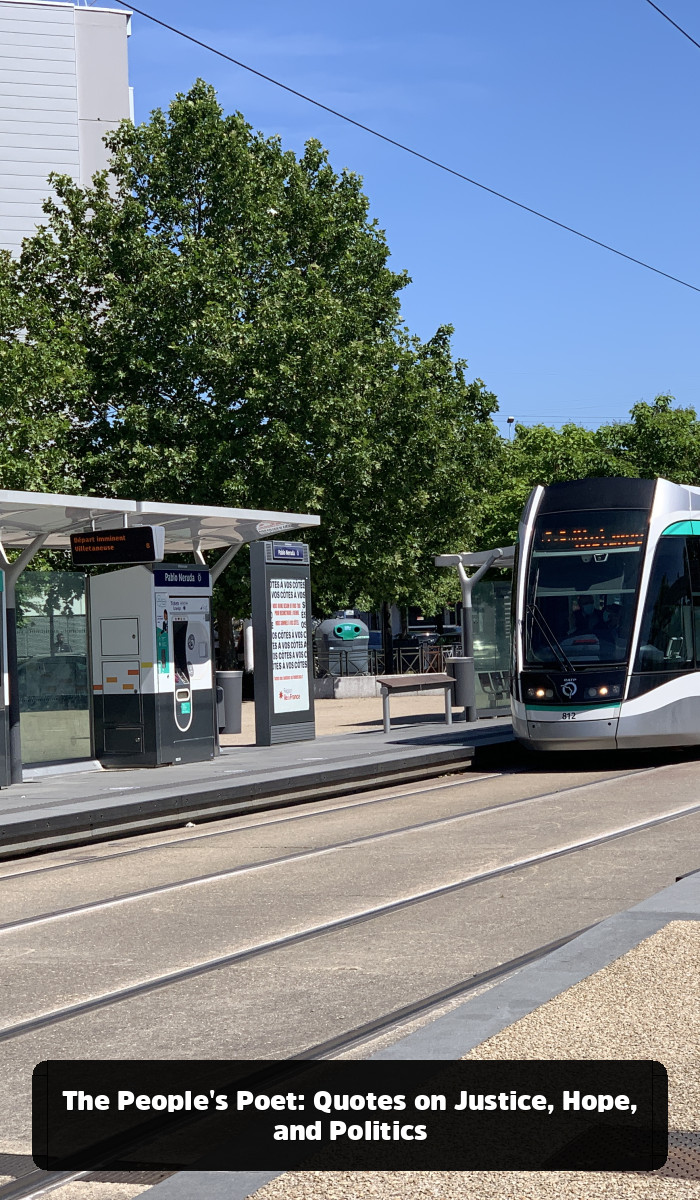
It is impossible to fully understand the world of Pablo Neruda’s words of wisdom without grappling with his politics. He was a lifelong, ardent communist, a senator in Chile, and a political exile. His poetry was not just a vehicle for personal emotion; it was a tool for social change, a weapon in the fight against fascism and oppression. While this aspect of his life is often glossed over in romantic collections of his quotes, it is essential to his identity as “the people’s poet.”
“You can cut all the flowers but you cannot keep Spring from coming.”

This is one of the most powerful and hopeful political metaphors ever created. It’s a statement of absolute faith in the inevitability of change and renewal. You can suppress a movement, you can silence voices, you can imprison leaders—you can “cut all the flowers.” But you cannot destroy the underlying force of history, the natural, unstoppable cycle of change—the “Spring.”
This quote became an anthem for those fighting against the brutal Pinochet dictatorship in Chile, which came to power after the coup that overthrew Neruda’s friend, President Salvador Allende. It’s a promise that even in the darkest of winters, the seeds of hope and rebellion are still alive beneath the soil, waiting for their moment to bloom. This is one of the quotes by Pablo Neruda that transcends its poetic origins to become a universal symbol of resilience and hope.
A Complex Legacy
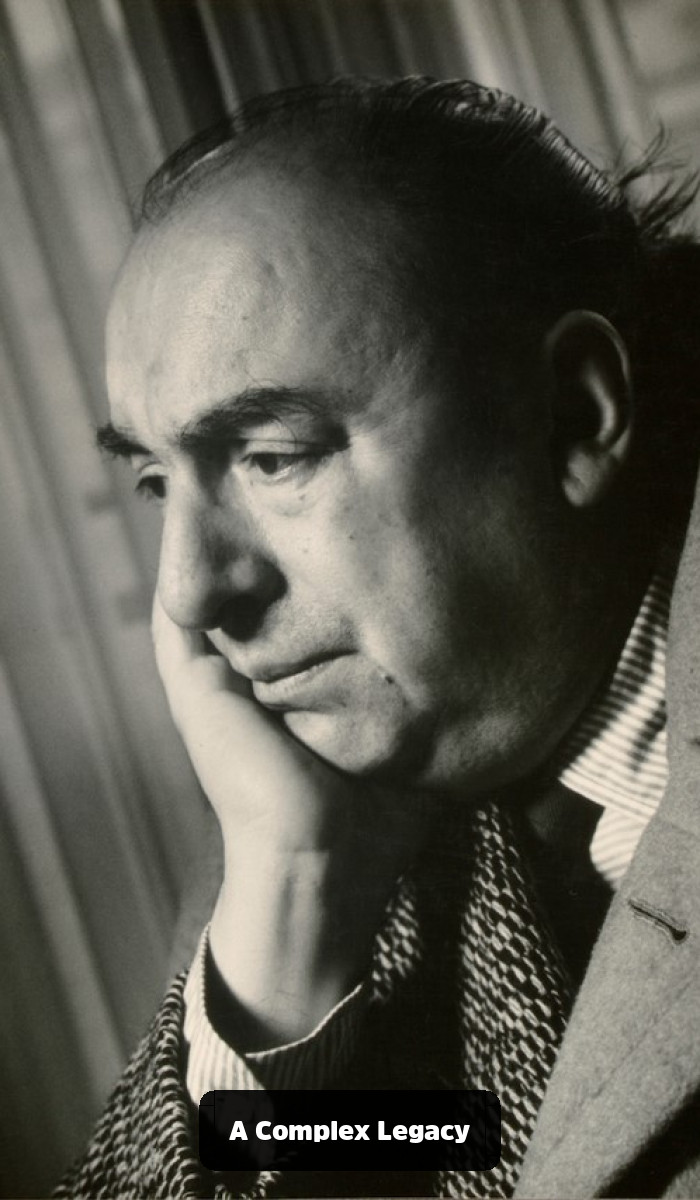
When discussing Pablo Neruda Quotes, it is intellectually and morally necessary to acknowledge the dark stains on his personal legacy. In his memoirs, he confessed to a sexual assault he committed in Ceylon (now Sri Lanka) in 1929. He also abandoned his only child, a daughter born with hydrocephalus, and his first wife.
How do we reconcile the man who wrote such breathtakingly beautiful poetry about love and justice with the man who committed these reprehensible acts? There is no easy answer. We cannot and should not ignore or excuse his actions. They are a part of his story. Perhaps the best we can do is to hold two conflicting ideas at once: that a person can create works of profound beauty and empathy, while also being capable of causing profound harm. To ignore the darkness is to create a sanitized, incomplete picture of the man. An honest exploration of Pablo Neruda Quotes must be willing to engage with the brilliant, and deeply flawed, human who wrote them.
“Only with ardent patience will we conquer the splendid city…”
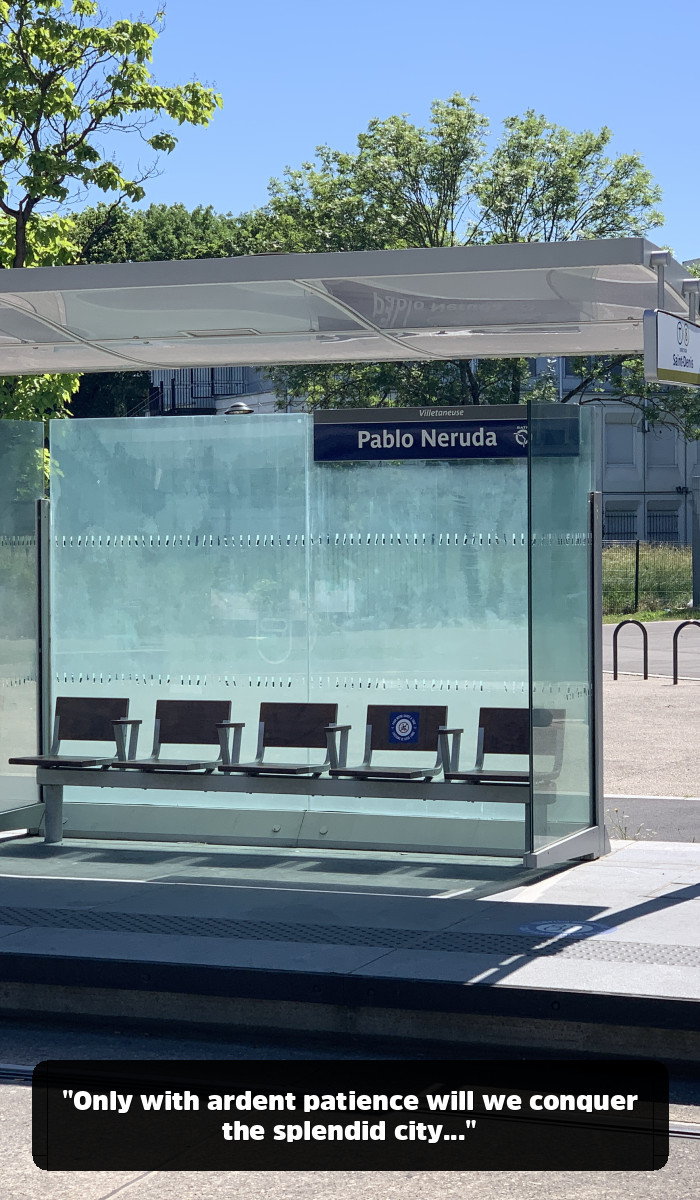
This quote speaks to the nature of political struggle. The “splendid city” is the utopian vision of a world with “light, justice and dignity to all men.” Neruda understood that this city is not built overnight. It requires “ardent patience”—a combination of fiery passion (“ardent”) and long-term perseverance (“patience”).
This is a rebuke to both apathy and impulsive, directionless rage. He is arguing for a struggle that is both passionate and strategic, one that is willing to endure setbacks and to work tirelessly over a long period to achieve its goals. It’s a call for the kind of dedication that fueled his own lifelong commitment to his political ideals. This is one of the Pablo Neruda quotes that reveals the mind of the political strategist as well as the poet.
An Ode to Common Things: Quotes on Life, Nature, and the Soul
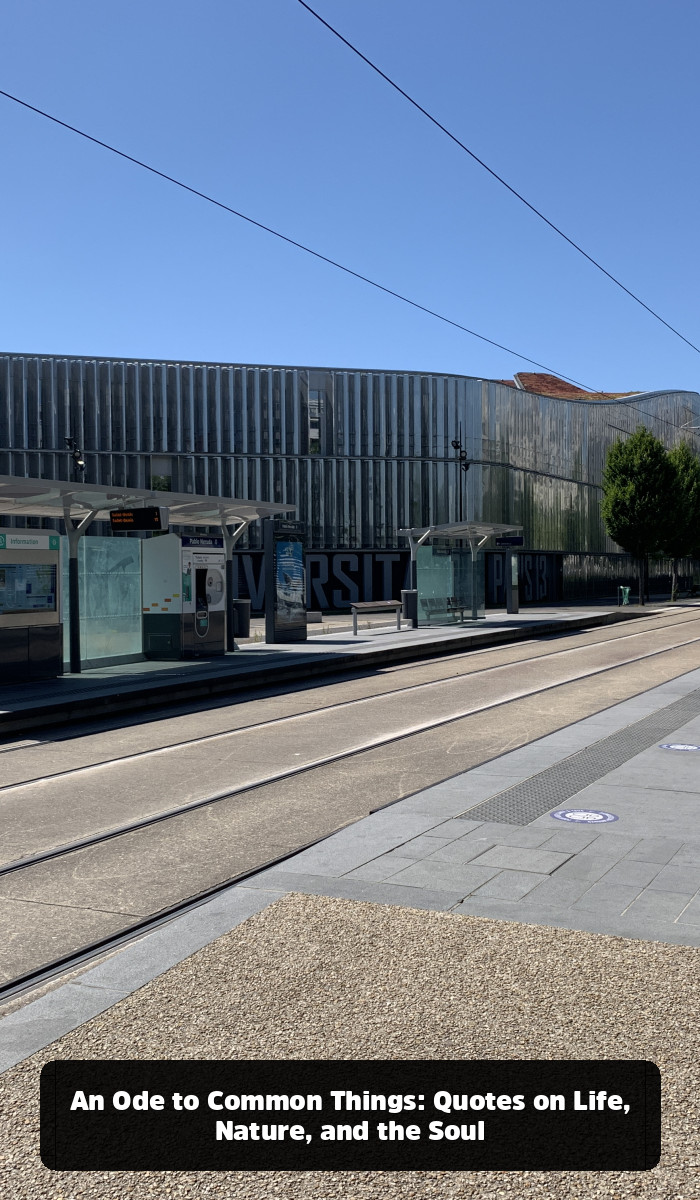
While famous for his soaring love poems and political anthems, some of Neruda’s most delightful and profound work comes from his odes to everyday objects. He wrote poems to his socks, to a lemon, to a bar of soap, to a simple onion. In these odes, he found magic in the mundane and taught us to see the world with new eyes. These Pablo Neruda quotes and themes are a celebration of the quiet wonder of ordinary life.
“Laughter is the language of the soul.”
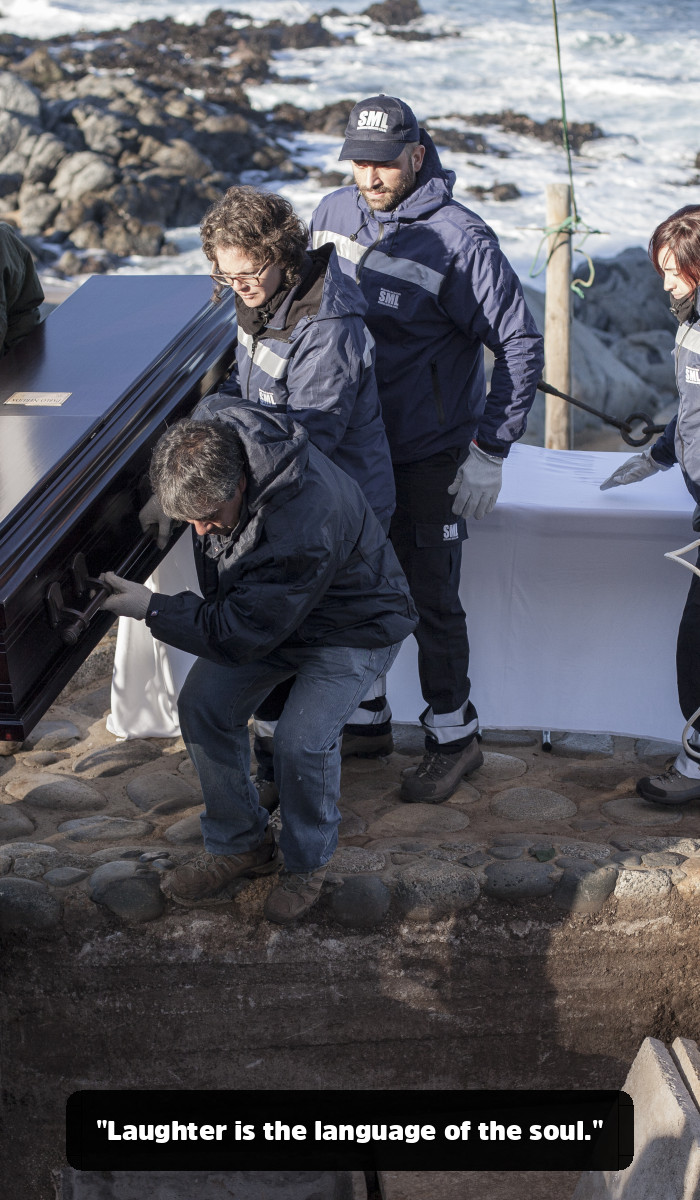
This simple, beautiful statement captures a profound truth. Laughter is a universal language, a form of communication that transcends culture and words. It is an involuntary expression of joy, of connection, of the soul’s delight. Neruda, whose work could be so deeply serious and sorrowful, also had a great capacity for joy. He understood that laughter was a vital, life-affirming force. This is one of the most direct and joyful Pablo Neruda Quotes.
On Finding Yourself: “Someday, somewhere – anywhere, unfailingly, you’ll find yourself…”
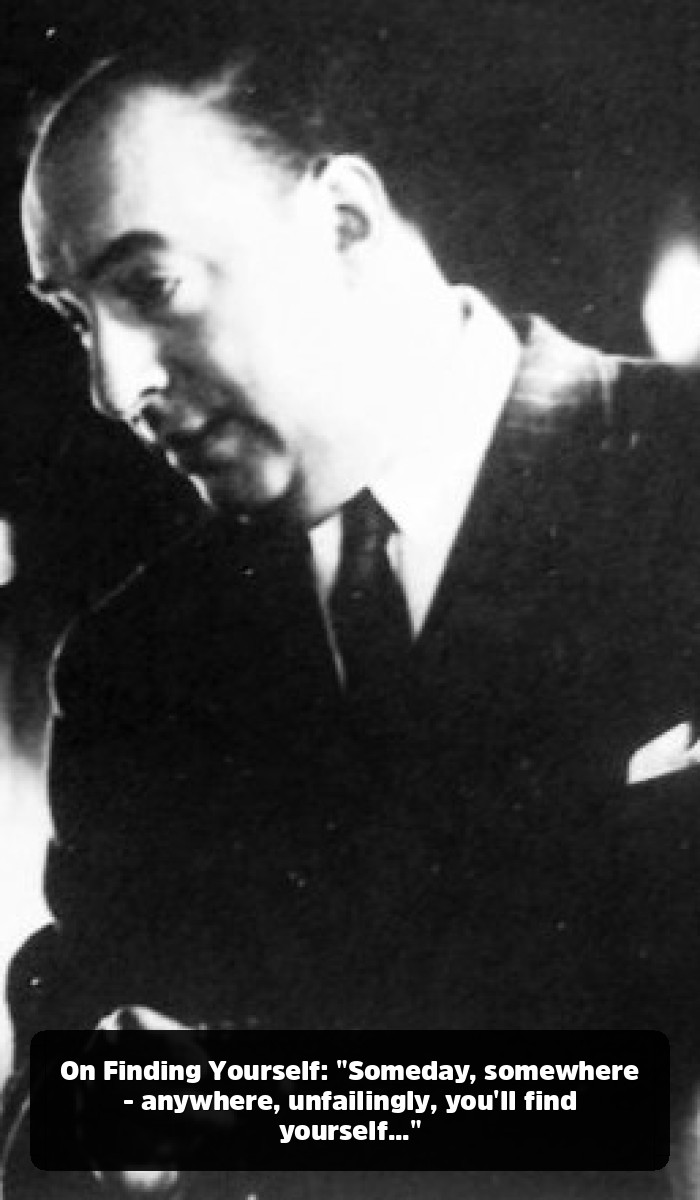
This quote speaks to the journey of self-discovery. It’s a promise that, eventually, we all have a moment of reckoning with our true selves. That encounter, he warns, “can be the happiest or bitterest hour of your life.” The happiness comes from finding and accepting your authentic self. The bitterness comes from the realization that you have been living a life that is not your own. It’s a powerful call to introspection and authenticity, a core theme in many famous Pablo Neruda sayings.
His Connection to Chile: “He who does not know the Chilean forests, does not know the planet.”
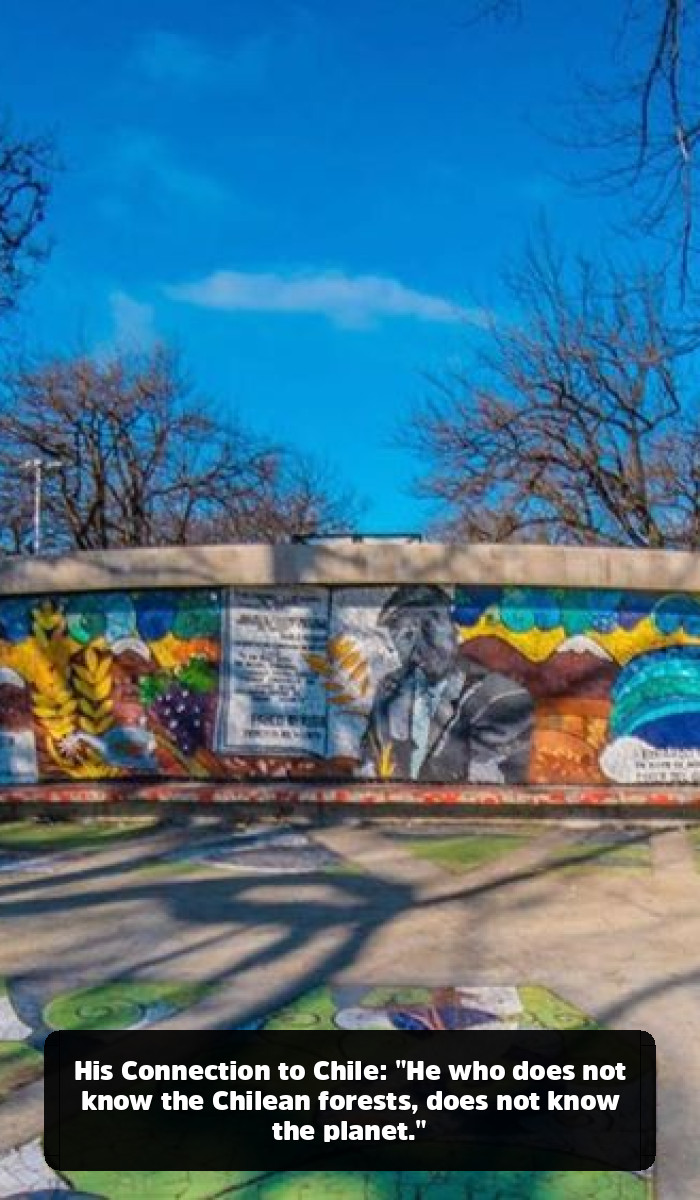
Neruda’s identity was inextricably linked to the landscape of his beloved Chile. His poetry is filled with the rain, the forests, the rivers, and the coastline of his homeland. He saw the natural world not as a backdrop, but as a living, breathing entity that shaped his very soul. This quote is a testament to that deep connection. For him, the specific, tangible reality of the Chilean forest was a gateway to understanding the universal truths of the planet itself. The Pablo Neruda quotes about nature are not just descriptions; they are expressions of a deep, spiritual bond with the earth.
The Fire and the Flower: The Pablo Neruda Quotes That Will Break and Remake Your Heart





